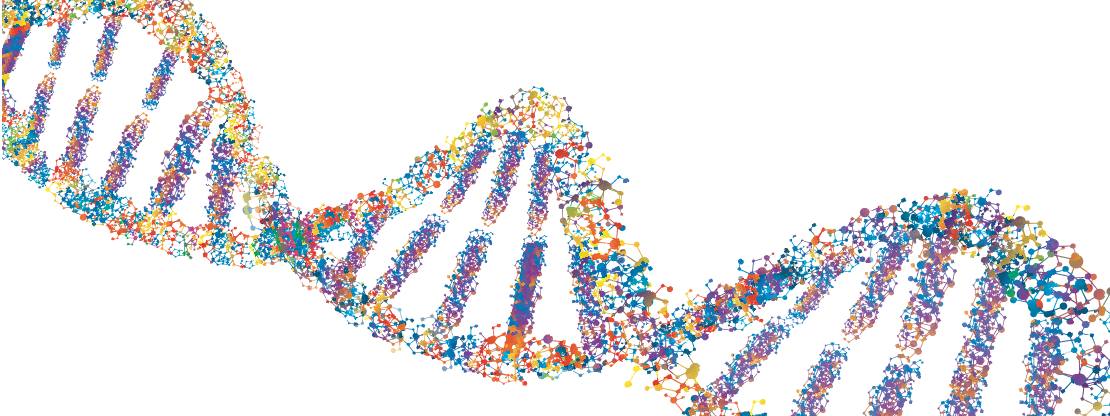How could our nutrition today affect future generations?: A Q&A with Dr. Heidi Lempradl and Dr. Andrew Pospisilik
September 24, 2020

Can a person’s diet, experiences and lifestyle impact their children’s health or even the health of subsequent generations?
That’s the big question that Van Andel Institute’s Dr. Andrew Pospisilik and Dr. Heidi Lempradl are trying to solve. And so far, many signs point to the answer being “yes.”

Evidence to date suggests that nutrition and the environmental factors to which we are exposed have a ripple effect across generations, possibly even altering a person’s predisposition to disease. Pospisilik and Lempradl work to better understand how this information traverses generations as well as the role of metabolism in the process.
Their goal? Developing ways to prevent and treat diseases including diabetes, cancer and Parkinson’s, and to protect our children from the unwanted consequences of our own lives.
You can hear Drs. Pospisilik and Lempradl discuss their research during VAI’s next public lecture, A Focus on Metabolism’s Influence on Future Generations, at 12 p.m. ET, Sept. 30 (This event has passed. You may view the recorded presentation here). In the meantime, here’s a sneak peek.
Q: Let’s start with the basics. What is metabolism?
Dr. Lempradl: At the highest level, metabolism is the total mix of chemical reactions that happen constantly throughout the body to keep us functioning. Most people think about metabolism in the context of food, but it’s really more than that.

Dr. Pospisilik: The energy produced by these reactions is distributed throughout the body, where it is either stored for later use or is used right away to power everything from keeping your heart beating, to giving you the energy to go jogging, to keeping individual cells functioning. Breakdowns in metabolism, whether on a large or small scale, can contribute to disease.
NOTE: If you would like to learn more about metabolism, check out our explainer video here.
Q: How could what I eat now or what I’m exposed to now impact my potential future children later?
Dr. Pospisilik: That’s a complicated question with a complicated answer, so let’s break it down into a few different pieces. A bit of background may help. All of our biological information — the instructions that make us who we are — are encoded in our genes. We get half of our genetic information from our father and half from our mother and, together, this information results in us.
Dr. Lempradl: We’ve all heard of “nature vs. nurture.” In this scenario, our genes are “nature.” But they don’t act alone — there is another layer of control that regulates when the instructions in genes are acted upon and when they are not. This is called epigenetics.
Essentially every cell in the human body — all 30 or so trillion of them — has the same set of instructions, the same DNA. But not all of these instructions are needed at the same time; epigenetics determine when specific instructions are needed and when they’re not. Epigenetics are the reason why a bone cell knows to be a bone cell and a heart cell knows to be a heart cell. Both bone and heart cells have the same instruction manual; they’re just reading from different chapters.
Epigenetics often get lumped into the “nurture” half of “nature vs. nurture,” but that’s not exactly accurate. Rather, epigenetics are a mix of both, although it is fair to say that epigenetics are more responsive to the environment than genetics.
Dr. Pospisilik: If we come back to the original question, it’s really epigenetics that could allow the information from a parent’s exposures, whether diet or environmental factors, to affect their offspring. Several studies have shown that the children of women who experience starvation during pregnancy are more likely to be predisposed to higher cholesterol, obesity, diabetes and other conditions. The reason is thought to be epigenetic changes.
Dr. Lempradl: These mothers experienced a great deal of stress, so their bodies responded by adjusting the activity of certain genes, including perhaps genes that regulate metabolism, ultimately slowing it to cope with starvation conditions. The evidence shows that these changes are carried through to their children and altered their metabolisms as well. The end result is children with “slower” metabolisms more suited to operating in survival mode rather than during times where food is abundant.
Q: How could understanding these processes better help build a healthier future?
Dr. Lempradl: In many ways, we’re still in the early days of this field, but the potential is endless. Imagine a world in which we may be able to reduce disease risk in future generations by changing nutrition or exposure to certain environmental factors now.
Dr. Pospisilik: That’s really the end goal — to prevent the unintentional consequences of our lifestyle choices and our stresses, and to improve the health of future generations. It’s early but immensely exciting.